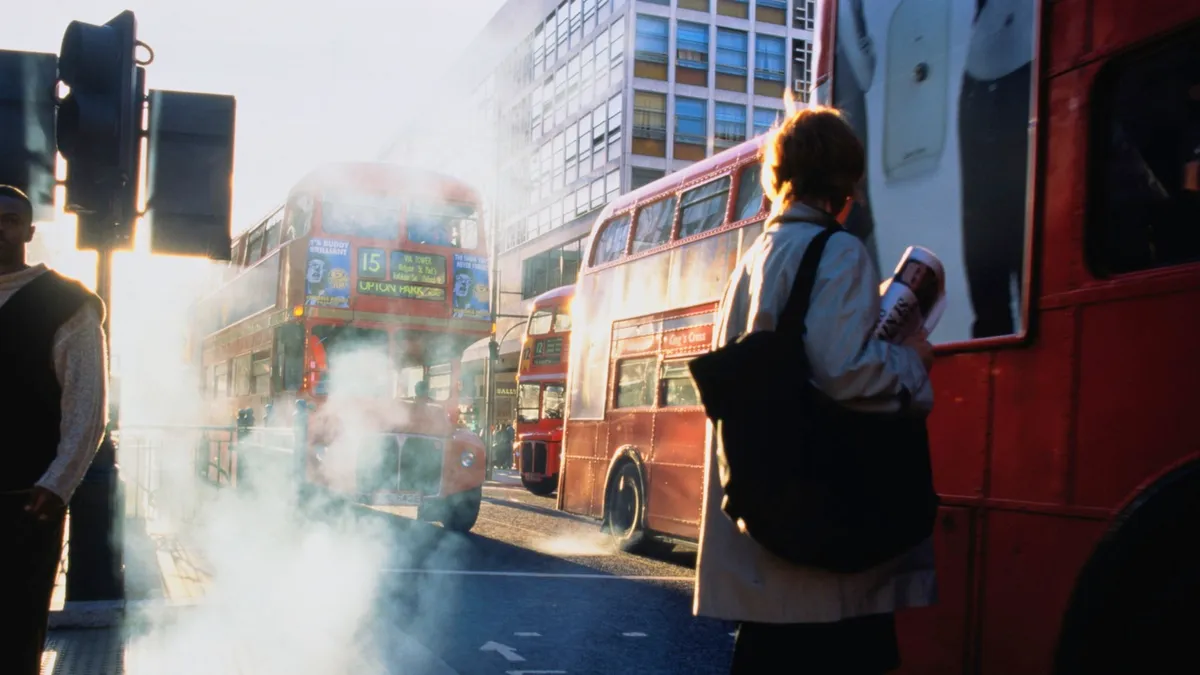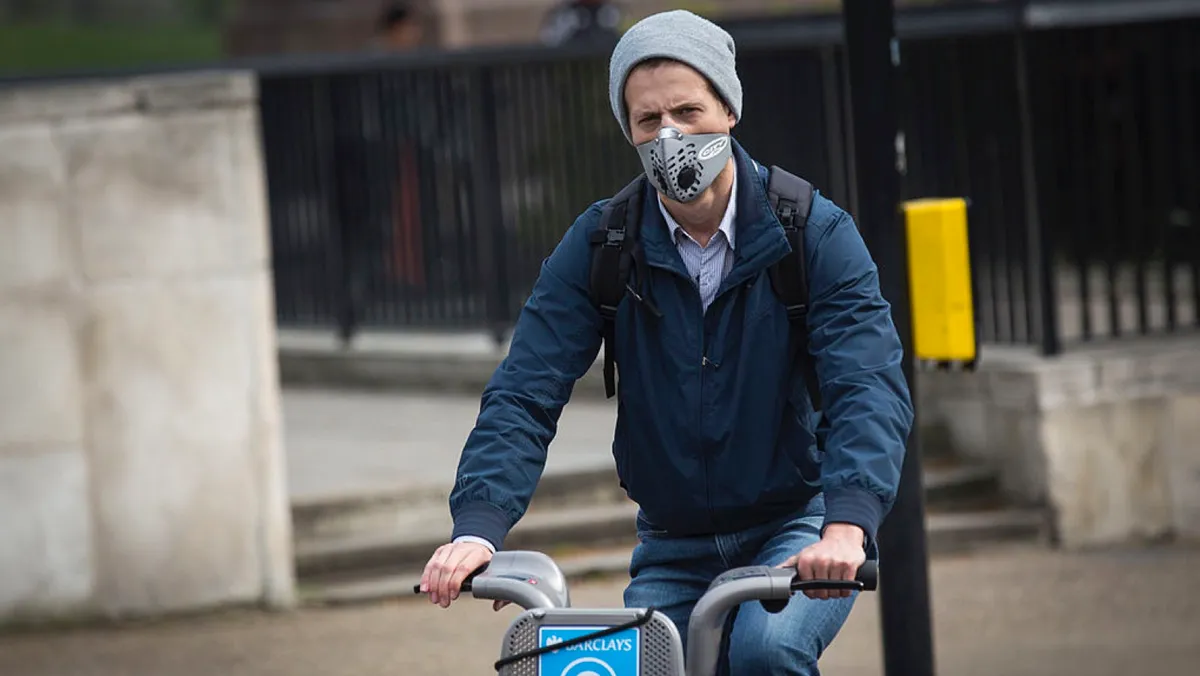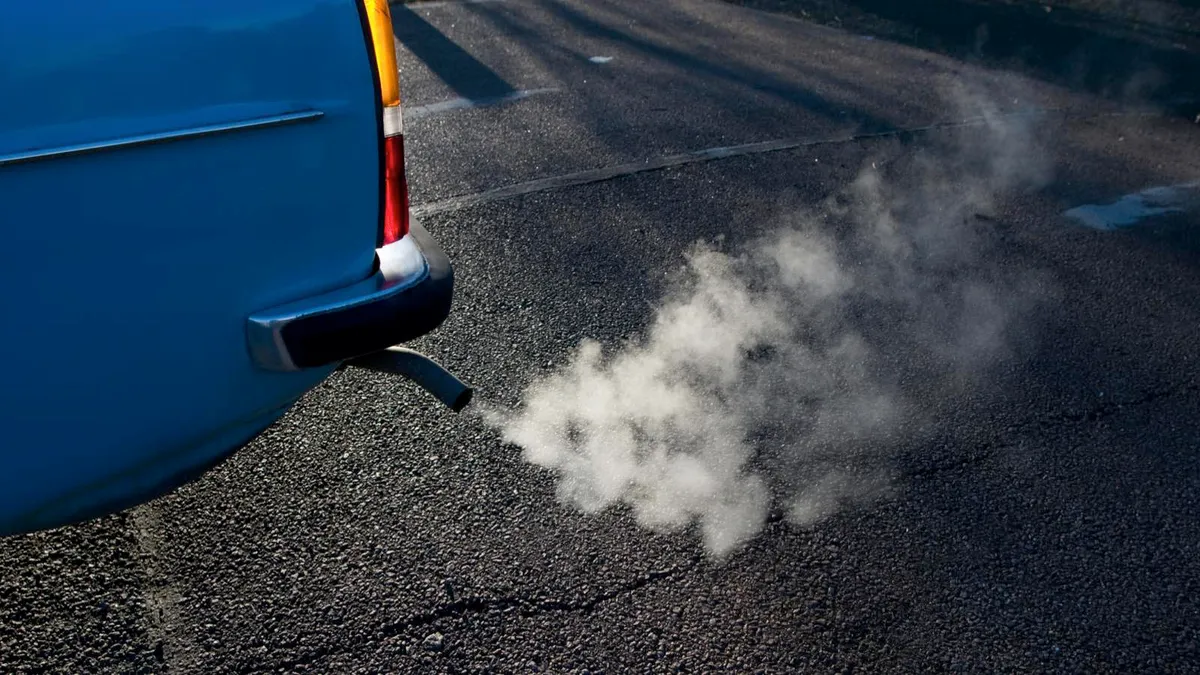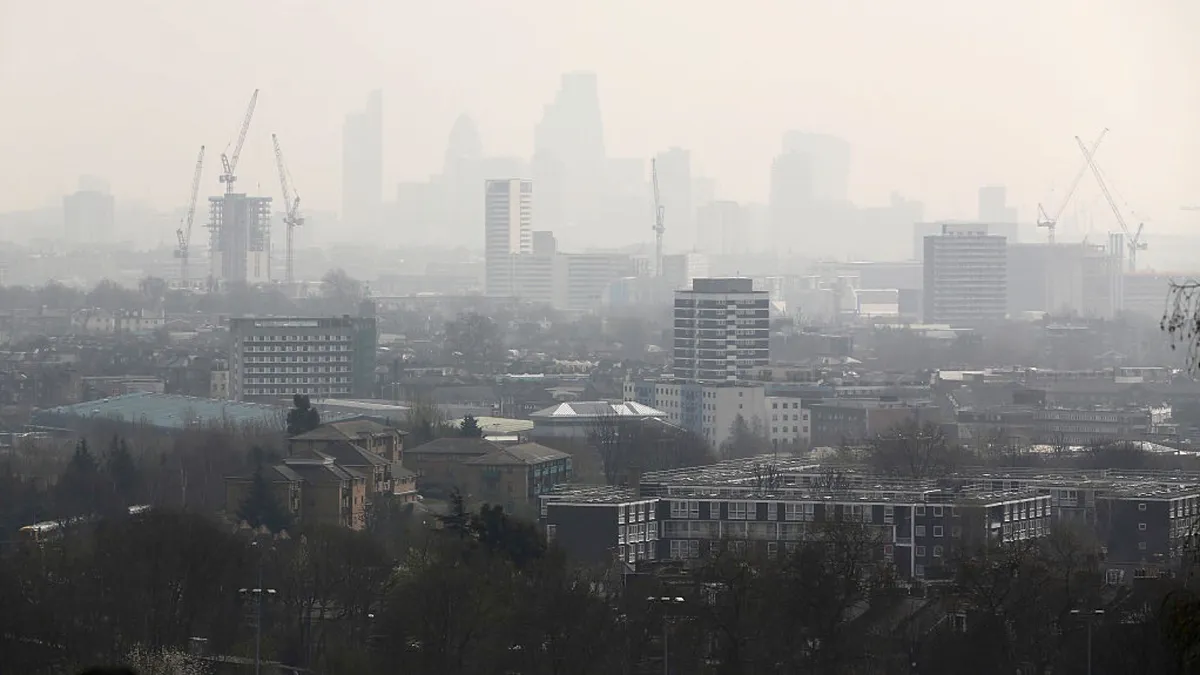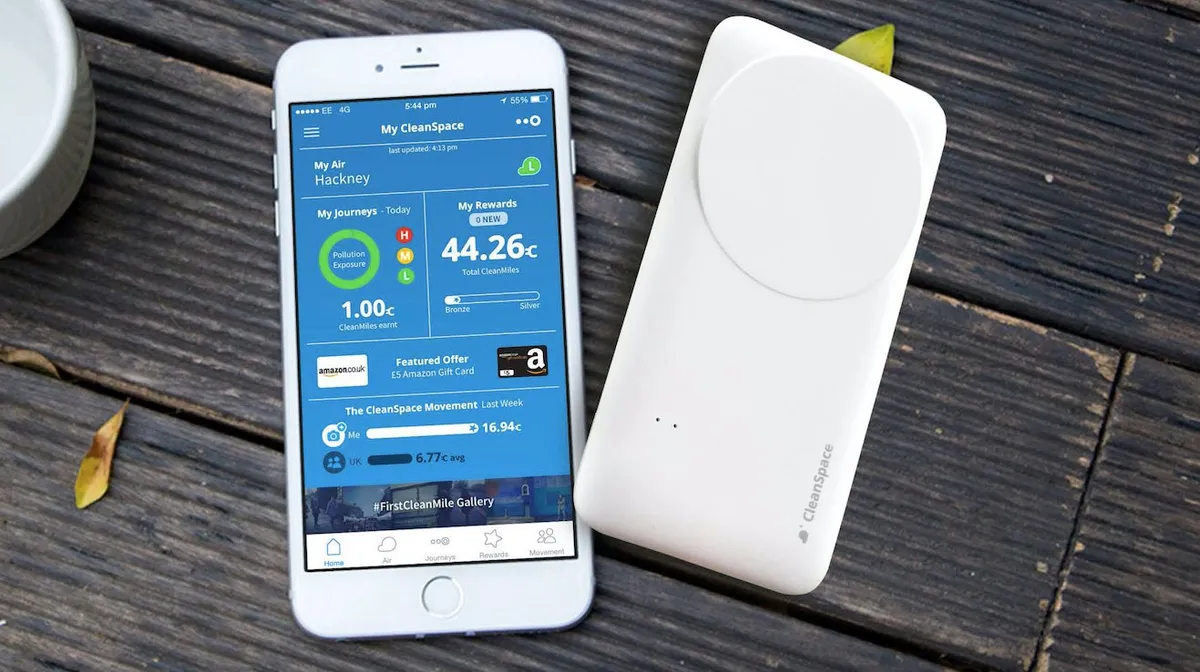There is now overwhelming evidence that air pollution in the UK is contributing to the early deaths of tens of thousands of people each year, say two medical organisations.
The Royal Colleges of Physicians and of Paediatrics and Child Health warn that the biggest threat comes from motor fumes and factories, and recommend that people should leave their car in the garage and walk, cycle or take public transport wherever possible. Meanwhile a separate study (see below) has estimated that fewer than one in 10 Brits cycle to work.
Heart disease and lung problems like asthma and cancer are just some of the health problems being exacerbated, if not directly caused, by air pollution. The bill for this damage is calculated at £20bn, taking into consideration their impact on the health services and on business.
Related: 10 things that'll make every cycle commuter furious
Fumes being vented into the car behind
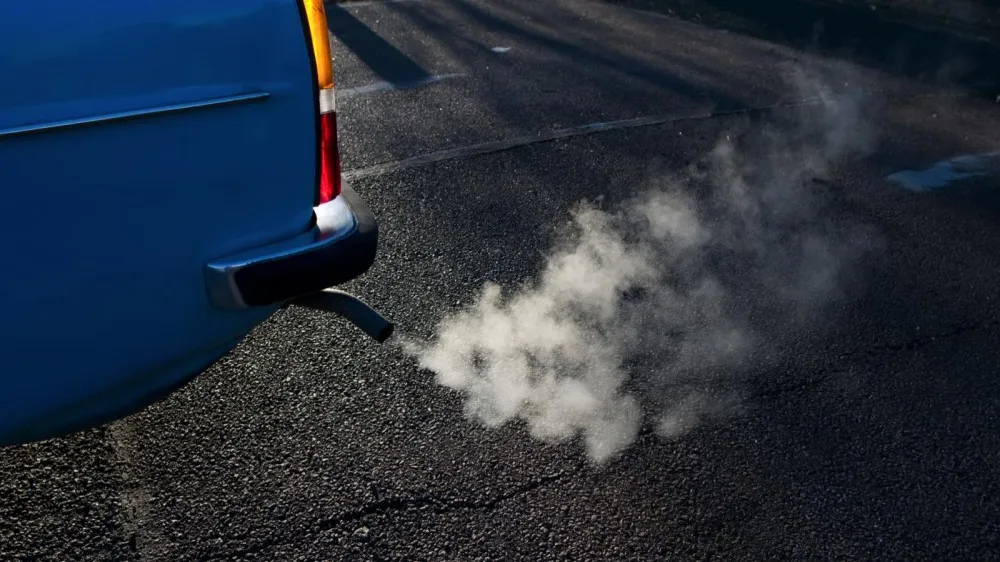
Report co-author Professor Holgate told BBC Radio 4's Today programme: "When you see cars piling up on the way to school taking their children, the fumes directly from the vehicle in front are being vented straight into the car behind, and exposing their child – and yet we are ignoring this."
The report recommends that local authorities should have the power to close or divert roads when traffic volume sends air pollution levels up to dangerous levels. It also calls for authorities to build new homes away from busy roads, and monitor pollution levels more closely.
Above all, it recommends that polluters must take responsibility for harming the public's health. Tougher air quality regulations must be introduced, including reliable emissions testing for cars.
Indoor pollutants
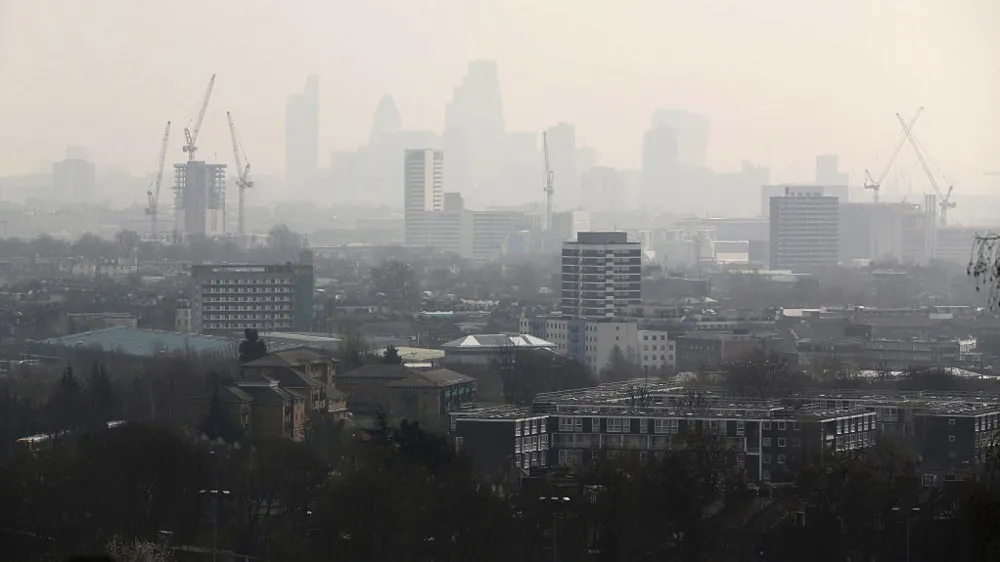
Indoor air pollution is not believed to be as big a problem as traffic fumes, but the experts believe it is still a danger, and has often been overlooked in the past. The biggest danger indoors is tobacco smoke, but poorly maintained cooking appliances, wood-burning stoves, mould and mildew, and even air cleaning solvents and air fresheners can also cause health problems.
"As NHS costs continue to escalate due to poor public health - asthma alone costs the NHS an estimated £1bn a year - it is essential that policy makers consider the effects of long-term exposure [to pollutants] on our children and the public purse," said co-author Professor Jonathan Grigg.
To read the report in full, head here.
Traffic concerns
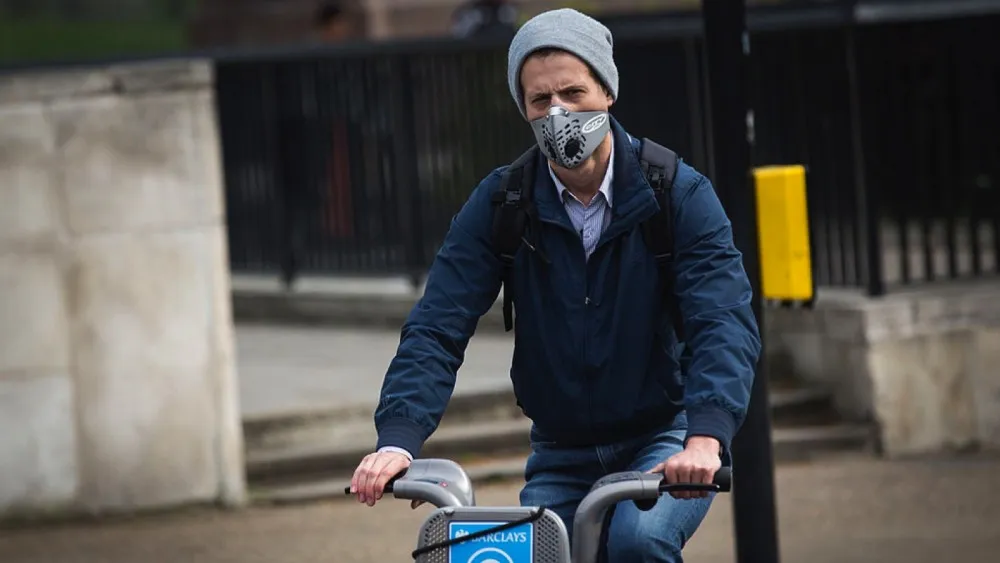
In related news, a new study by online retailer Ribble Cycles suggests that just 9% of working Brits currently cycle to work. Traffic concerns are one of the biggest reasons given, with around a quarter (26%) of respondents saying the fear of accidents puts them off commuting by bike. Londoners are the most concerned about accidents (39%).
Other reasons given include the weather – understandable given the winter of flooding and strong gales that the UK has seen recently – and the lack of cycle lanes. Distance to work was the top reason given for not commuting by bike, with 42% claiming they live too far away.
"It seems Britain is getting left behind when it comes to the cycling revolution,” said Ribble’s Matthew Lawson. “While residents of European capitals, such as Amsterdam and Copenhagen, have fully embraced travelling on two wheels, the traffic levels in our own capital put Londoners off cycling to work for fear of having an accident.
“There are many schemes out there aimed at helping people build their cycling confidence, and with the introduction of more cycling lanes and cycling superhighways within our key cities, hopefully this will make cycling a more accessible commuter option, helping to dramatically reduce city pollution and congestion.”
The study was conducted by YouGov with 1,143 UK adults in full or part-time employment, weighted to represent UK adults as a whole.
CleanSpace
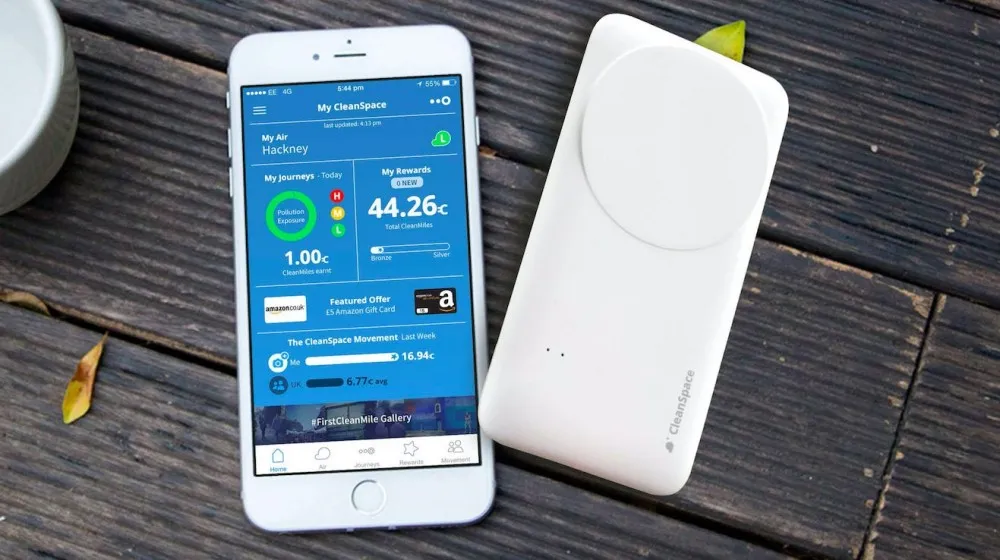
BikeRadar will be covering this subject in more detail soon via a collaboration with air pollution experts CleanSpace. We’ll be taking a look at their new smart sensors, and will be providing a small number to BikeRadar readers as part of a project to compare air quality in different parts of the UK. Watch this space.
What are the air pollution levels like where you live? Let us know in the comments below!

